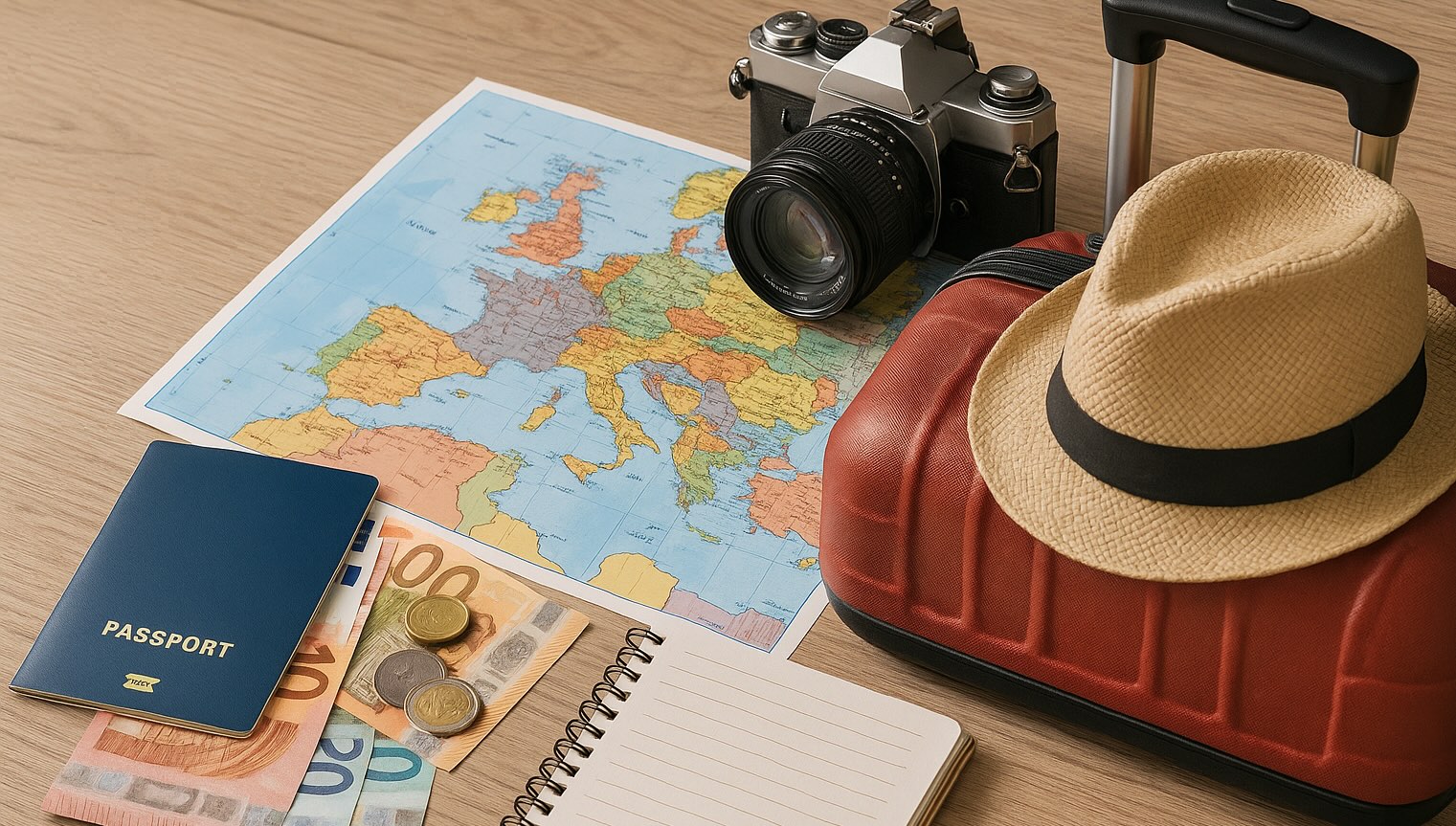
How Much Money Will You Really Need to Relocate to Europe?
This article explains general principles and is for information only. It does not constitute legal or tax advice. Personal outcomes depend on residence, income type, cross-border links, documents, and timing.
So, you’ve decided to move to Europe. Or maybe you’re just weighing your options? Whether it’s orderly Germany, sunny Spain, colorful France, or laid-back Portugal, one of the first questions you’ll face is: how much money do I actually need to start?
Relocation isn’t only about booking a flight and finding an apartment. It’s also deposits, proof of funds, insurance, and those little hidden costs that pop up when you least expect them. Let’s go step by step.
Financial Requirements for Expats
One of the main hurdles when moving to Europe is proving that you can actually take care of yourself. European countries have tightened their rules in recent years: before you even set foot in your new home, you’ll likely need to show that you have enough money to cover your living costs.
-
As a tourist: you’ll need travel insurance and funds to cover your stay (on average, authorities look for about €50–100 per day).
-
As a long-term resident: things get stricter. You’ll need to provide proof of funds to get a visa or residence permit.
👉 For example:
-
In Germany, freelancers and students usually need a “blocked account” with about €10,000 per year.
-
In Spain, the non-lucrative visa requires proof of income of €28,800/year for the applicant and €7,200 for each dependent.
-
In France, you need to demonstrate income above the minimum wage (SMIC, ~€1,400/month in 2025).
-
In Portugal, residence permits often require proof of at least €820 per month × 12 months.
What is Proof of Funds?
Having cash isn’t enough. Even if you bring €100,000, you can’t just walk into a bank and buy an apartment. European banks want proof of where your money came from.
-
If you sold property, you’ll need the sale contract.
-
If it’s business income, you’ll need invoices or tax returns.
-
Transfers should go through SWIFT, otherwise the money may get stuck.
And yes, technically you can cross the border with up to €10,000 per person. A family of four could carry €40,000. But in reality, showing up at customs with bags of cash is not a good idea. Safer, cheaper, and cleaner: just wire the money.
How Much Money Do You Need and What For?
This depends on your lifestyle and where exactly you’re moving. But there are some averages you should keep in mind.
If you’re single
You’ll need €5,000–7,000 for the first few months.
Why so much?
-
Rent: first month + deposit (Berlin, Madrid, or Lisbon → €1,500–2,500 upfront)
-
Health insurance: €200–400/month
-
Food, transport, basics: €700–1,000/month
And remember: it may take a few months before your first paycheck.
If you’re moving with family
A family with a child will need at least €12,000–15,000.
-
Rent for a 2-bedroom: €1,000–1,500/month, plus deposits
-
Insurance for the family: €400–800/month
-
Kindergarten/private school: €400–1,000/month
-
Food, transport, daily life: €1,200–1,500/month
If you’re a retiree or investor
Most countries want to see stable annual income of €25,000–30,000 per person.
For example, in Italy, the elective residency visa requires €31,000/year per applicant.
Relocation Budget Calculator
The Hidden Costs Nobody Talks About
-
Agency fees for rentals: often equal to 1–2 months’ rent.
-
Translations and notary services: €300–1,000 for paperwork.
-
Furniture: in Germany, apartments are often completely unfurnished — budget €2,000–5,000.
-
Car and registration: used car €5,000–10,000, plus insurance.
-
Delays: finding a job or getting deposits back can take months.
Should You Buy Right Away?
Many people sell their property at home and dream of buying in Europe. That’s possible, but don’t rush. Spend a few months renting, getting to know the local laws, the way banks work, and the culture. Otherwise, you risk overpaying or buying in the wrong area.
Bottom Line
Relocating to Europe isn’t cheap, but it’s manageable if you plan ahead:
-
Singles: €5,000–10,000 for the first months.
-
Families: €12,000–20,000.
-
Retirees/investors: steady income of €25,000–30,000/year.
The golden rule: bring more than you think you’ll need and have documents ready to prove where the money came from. It will save you both stress and time.
Articles and calculators rely on general assumptions. Your outcome depends on your specific circumstances. Richys structures your situation to define a clear position. A verified EU expert can provide a written conclusion.
Start case analysis
